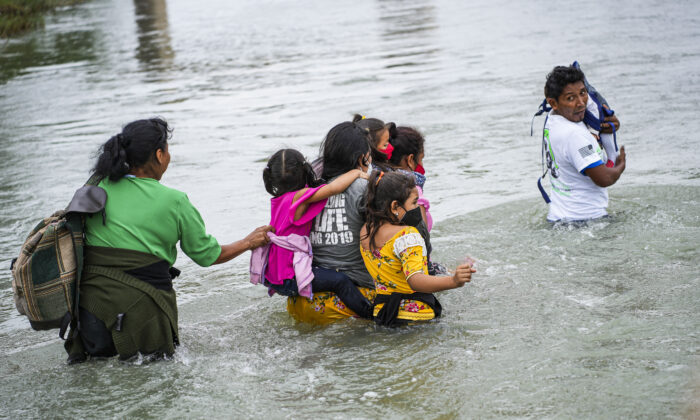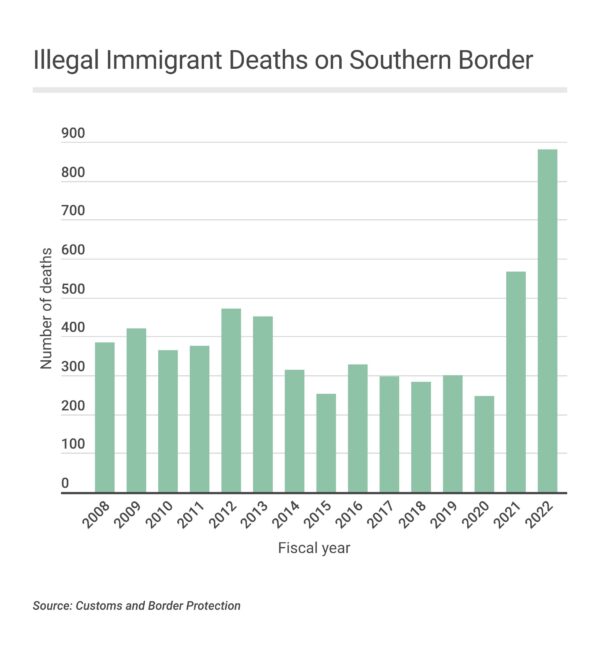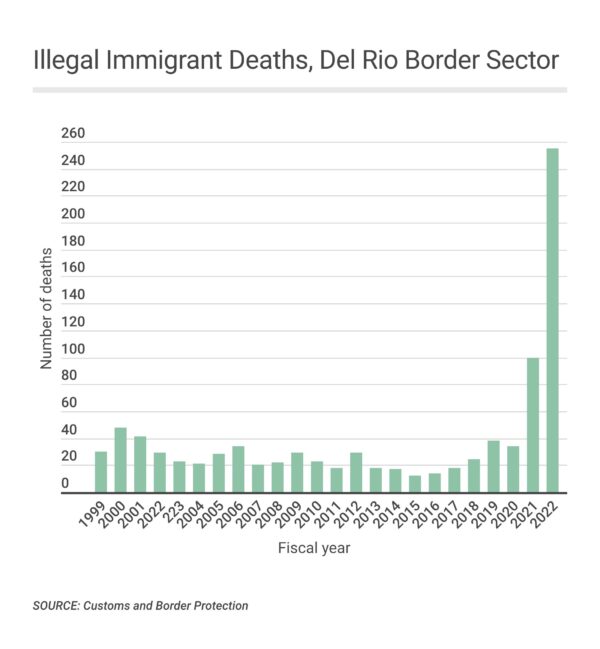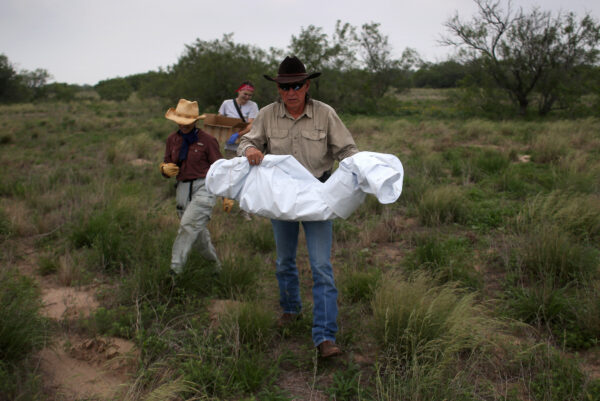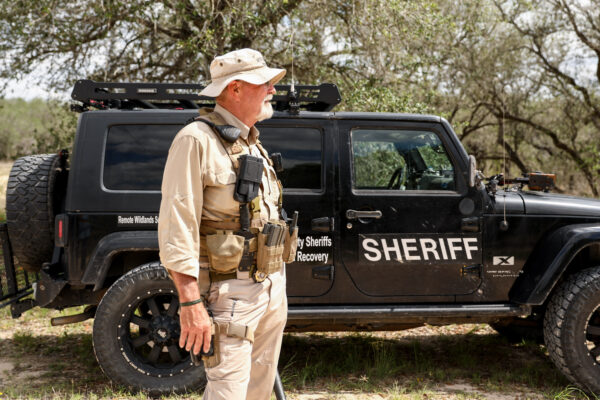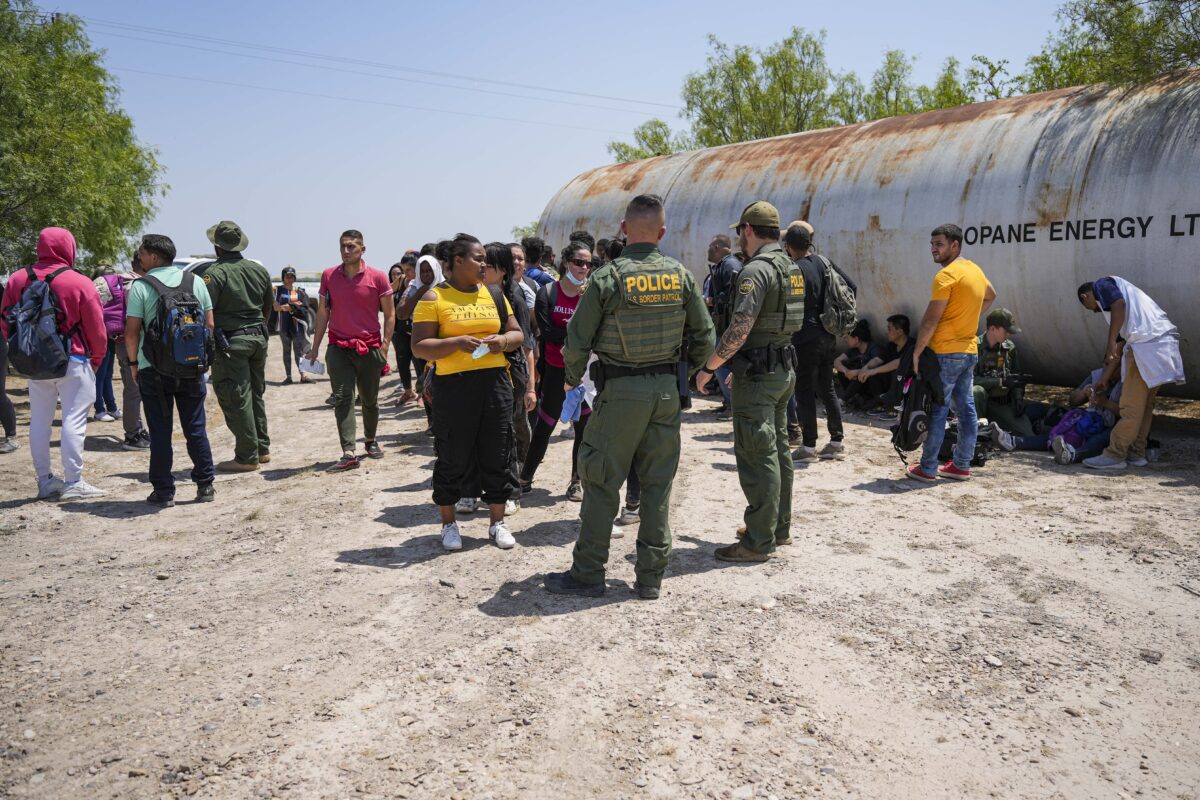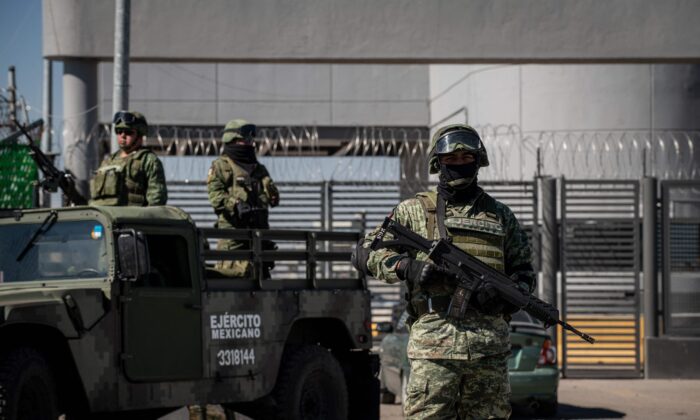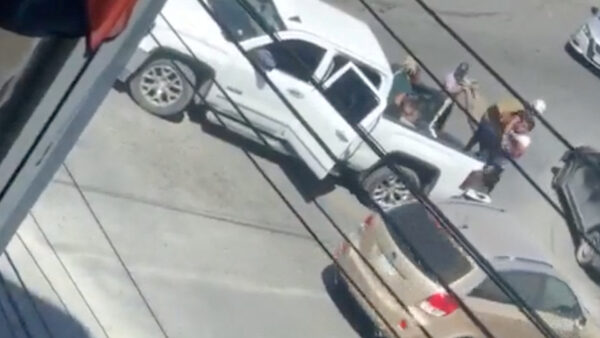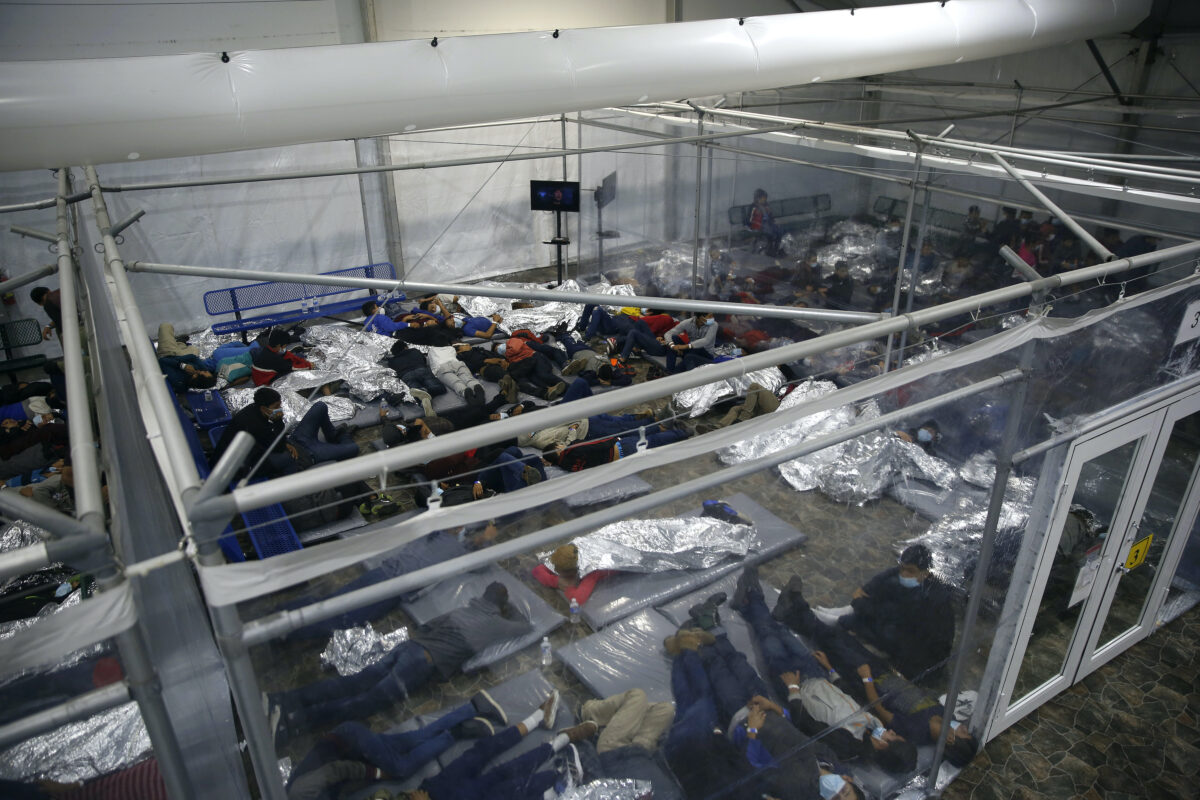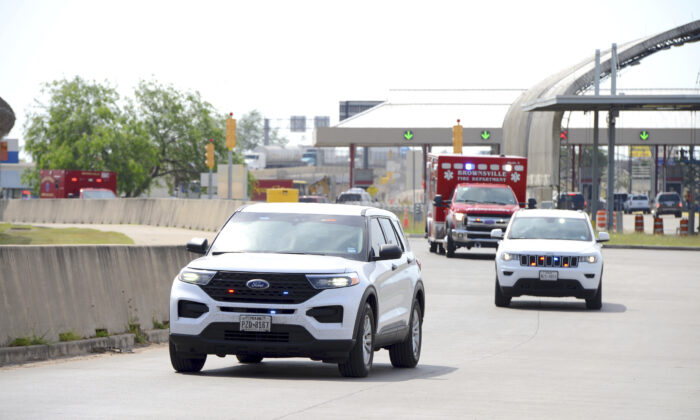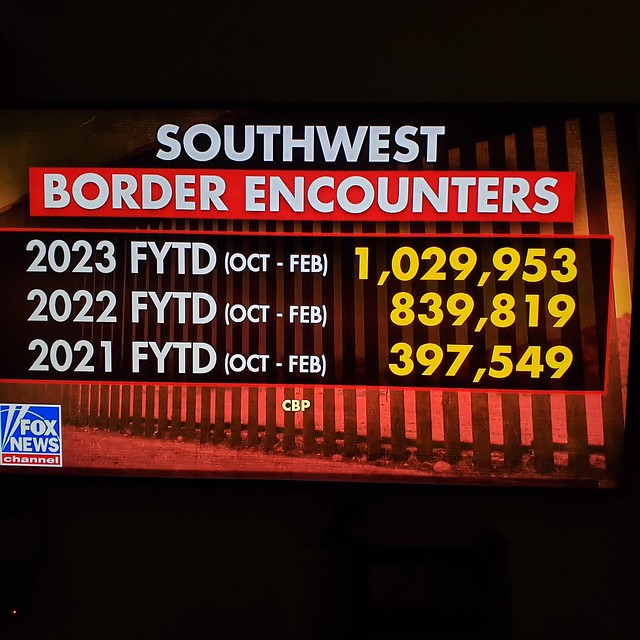Sheriff Group, Local Guide Warns Americans About Traveling to Mexico as Spring Break Approaches
Two FBI vehicles escort two Brownsville Fire Department EMS Ambulances through Veterans International Bridge at Los Tomates with two surviving U.S. citizens being transported to Valley Regional Medical Center in Brownsville, Texas, on March 7, 2023. (Miguel Roberts/The Brownsville Herald via AP)
By Joe Gomez
March 8, 2023Updated: March 8, 2023
As millions of Americans are getting ready for spring break travel to Mexico, law enforcement officials, security experts, and travel gurus are debating the risks of traveling south of the border in light of the recent kidnapping and shooting of four Americans that resulted in two of them being killed.
The group was driving through the border city of Matamoros in a white minivan with North Carolina license plates when unidentified criminals opened fire and abducted them. Two were found dead, and two others survived.
It’s an incident that has some members of law enforcement along the border issuing a stern warning to anyone considering travel to Mexico.
“We have been giving the advice not to travel into Mexico, I know that does not resonate with communities along the border and their chamber of commerce but a life is something you can’t get back once it’s gone,” Clint McDonald Executive Director of the Southwestern Border Sheriff’s Coalition told The Epoch Times. The coalition is made up of sheriffs from 31 counties along the border in Texas, New Mexico, Arizona, and California.
“We have strongly urged people not to travel in these times and unfortunately the deaths that have occurred … it’s become a new normal and we do not like that, anytime someone loses their life in a situation like this it shouldn’t be a norm it should be something that everyone pays attention to and takes extreme caution and if you don’t have to travel do not travel,” he said.
In 2022, 13 million Americans traveled to Mexico, according to Mexico’s tourism office. The top destinations for travelers were areas along the beaches in Cancun and the Riveria Maya, and resort towns which travel experts say are safe.
“The border town of Matamoros is not anywhere near major tourist destinations such as Riviera Maya, Cancun, Puerto Vallarta, Punta Mita, Mexico City, San Miguel Allende, Oaxaca, or Yucatan Peninsula therefore should not affect perceptions about safety and traveling to these areas,” Zachary Rabinor, Founder and CEO of Journey Mexico told The Epoch Times “To put things in perspective, Matamoros is about 1,360 miles away from Cancun; that’s about the equivalent distance from the Texas side of the border to Chicago, Illinois.”
Safety at Tourist Hotspots
Matamoros, where the kidnapping and shooting happened, is in the Mexican state of Tamaulipas where the State Department presently has a “do not travel” advisory in place due to the risk of crime and kidnapping. Most popular tourist destinations in Mexico do not have that advisory and there are plenty of options to choose from.
“Beach destinations such as Riviera Maya, Cancun, Tulum, Los Cabos, Puerto Vallarta, Punta Mita continue to be the front runners, but we’ve recently seen interest in traveling outside the typical spots to places like Isla Holbox, Bacalar, La Paz and Baja Sur, Tamarindo, and Puerto Escondido,” Rabinor said. “We’ve also seen an increase to travel in the interior of Mexico, specifically Mexico City and Oaxaca.”
The cities listed above are all in Mexican states that do not have anything higher than a “reconsider travel” advisory from the U.S. State Department. That means there is still the possibility of being the victim of a crime or getting kidnapped, but security experts say people should be fine as long as they stick to the resorts.
“I would advise American tourists, Europeans, and others don’t wander off the reservation too much,” former FBI Agent James Conway, who worked as a legal attaché for the FBI in Mexico, told The Epoch Times. “In other words, the resorts are safe because there is a pretty hard security perimeter around them since the number two industry in the country is tourism, so the Mexican government and the Mexican military protect resort areas.”
“But by the same token I wouldn’t be renting a jeep and driving out to the mountains because you’re leaving that zone of security and just about anything could happen to you as it happened to these Americans who went into Matamaros,” said Conway, who also serves as a Managing Director with the security consulting firm Straife.
He adds that even though resorts and most tourist hot spots are safe, people should still exercise caution: “stay low key, not a lot of jewelry, not a lot flash, no U.S. baseball caps and football jerseys, carry a minimal amount of cash, one or two credit cards, don’t carry debit cards because of the express kidnappings that take place in Mexico, and stay in touch with family and the U.S. Embassy.”
Meanwhile, other cities considered to be popular tourist destinations are in Mexican states with a “do not travel” advisory, including Acapulco (located in the state of Guerrero) and Mazatlan (located in the state of Sinaloa).
The U.S. State Department has even issued a different kind of travel advisory for the resort-studded Caribbean coastal city of Cancun after medallion taxi drivers started harassing and attacking drivers from using the ride-sharing app Uber and their clients.
This happened after Uber was reintroduced in Cancun when a court ruled the ride-share app could operate after it was pushed out by taxi drivers in 2016.
Taxi drivers even blocked one of the main roads leading to the hotel district in Cancun in January which forced some tourists to walk or catch rides in police pickups to get to their flights out, or check-in, according to the Associated Press.
The State Department advises travelers that “past disputes between these services and local taxi unions have occasionally turned violent, resulting in injuries to U.S. citizens in some instances.”
Mexican: ‘You Don’t Go to Certain Places’
The kidnapping of four Americans and subsequent murder of two made headlines in the United States, but for many Mexican citizens, it is commonplace.
“For Mexicans, it’s very normal to see [stories] of dead people every day, in the news always you can hear like two people are disappeared and two days later they’re found dead. It’s sad but it started to become a normal thing here,” Pablo Gutierrez of Queretaro, Mexico, told The Epoch Times.
Gutierrez says oftentimes roads are blocked off because of shootings involving the cartels, sometimes between each other and sometimes with law enforcement.
“You don’t go to certain places where the cartels are fighting like Michoacan and Colima, you just go to the tourist places and that’s it,” he says.
Gutierrez also warns people never to drive at night in Mexico between cities, as Andres Avecias of Guadalajara learned when he was carjacked at gunpoint outside of the city by suspected members of a drug cartel.
“When the people came to me, the only thing I thought was that they would take the car or whatever they wanted, at the end of the day they had [guns] and I had nothing to defend myself with and even if I had, I would not have done anything that could put my life at risk,” Avecias told The Epoch Times.
Avecias says he stopped at a gas station late at night while he was driving between Guadalajara and a nearby town and when he pulled out to leave he found his path blocked by a truck. That’s when two men came up on either side of him with AK-47s pointed at his head and demanded his car.
He says in a situation like that, all you can do is “pray.”
“I’m not very religious, so the only thing that went through my mind is that if God exists, he would protect me so that nothing bad would happen to me, when they took the car and left, all I did was thank him for being alive,” Avecias said. “After having been pointed at with guns, I ran to my house and from there, already being in a safe place, I called the police, who all they did was go the area and file my complaint but everything has gone unpunished and there was never a solution.”
He says carjackings occur on a regular basis all over Mexico, which is why it’s recommended that for those traveling south of the border, they do so by plane and rely on ride-sharing services, to avoid a situation like that which happened in Matamoros.
“I would never advise anybody to drive across the border but if the situation is they are going to I would stay on main roads, I would stay on toll roads, I would only travel in daylight I would maintain contact via cell phone with family … [and] take every necessary step to avoid a confrontation with cartels,” said Conway.
It’s encouraged to take caution and avoid the Mexican states with a “do not travel” advisory listed above from the U.S. State Department. But for those who decide to travel to Mexico, the State Department has a list of safety tips to follow.
https://www.theepochtimes.com/sheriff-group-local-guide-warns-americans-about-traveling-to-mexico-as-spring-break-approaches_5108144.html?src_src=Morningbrief&src_cmp=mb-2023-03-09&est=IxvdcLvs8NVcuFvQbPZypOz42w2S865gCJtmXcywYOl%2FKTHOKEBj%2B5De


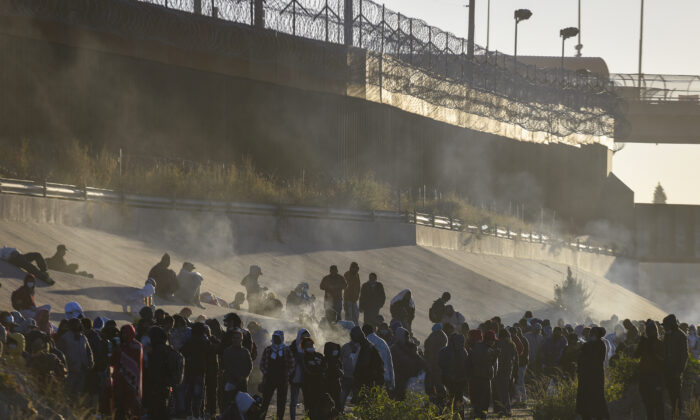
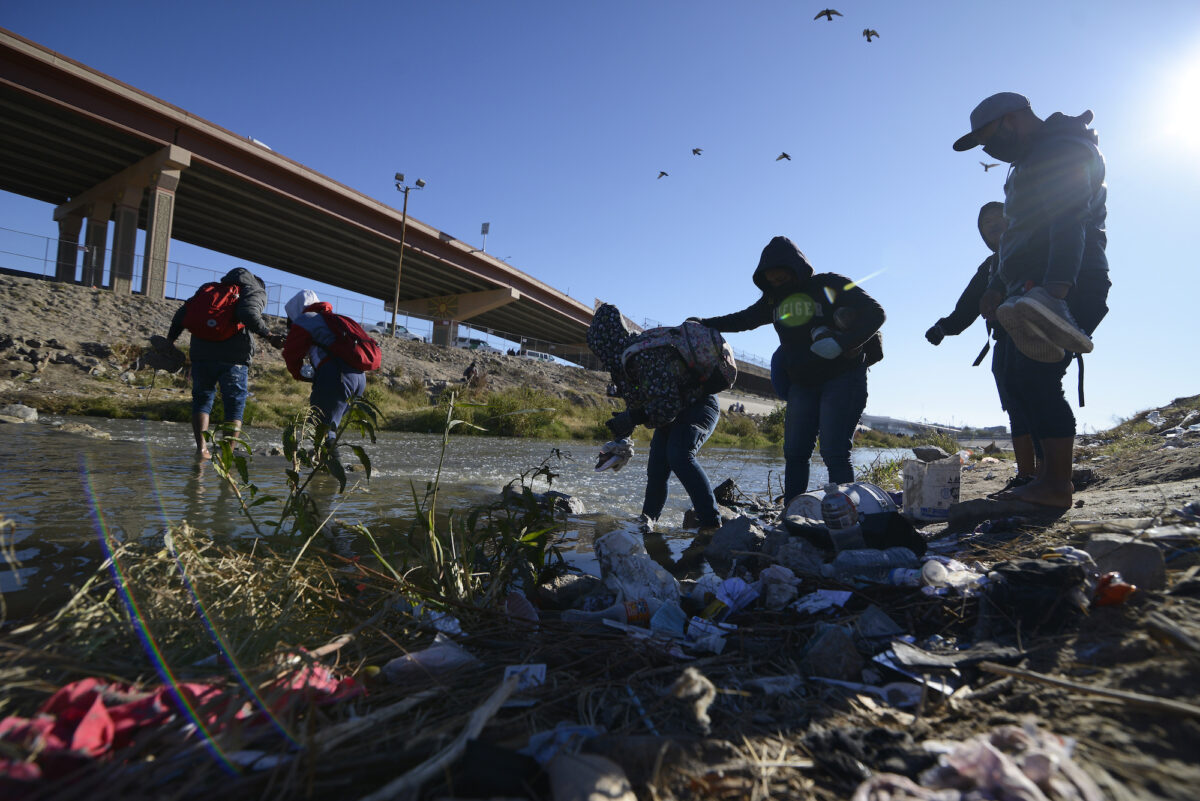
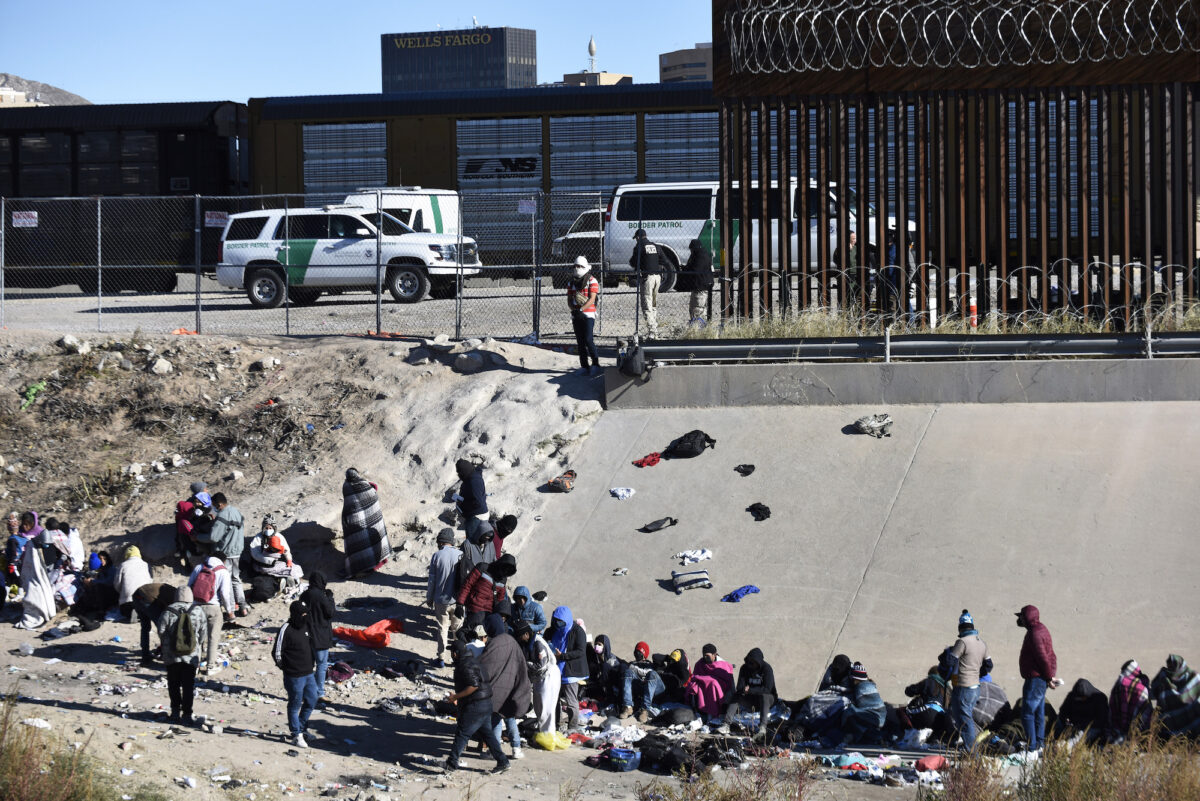
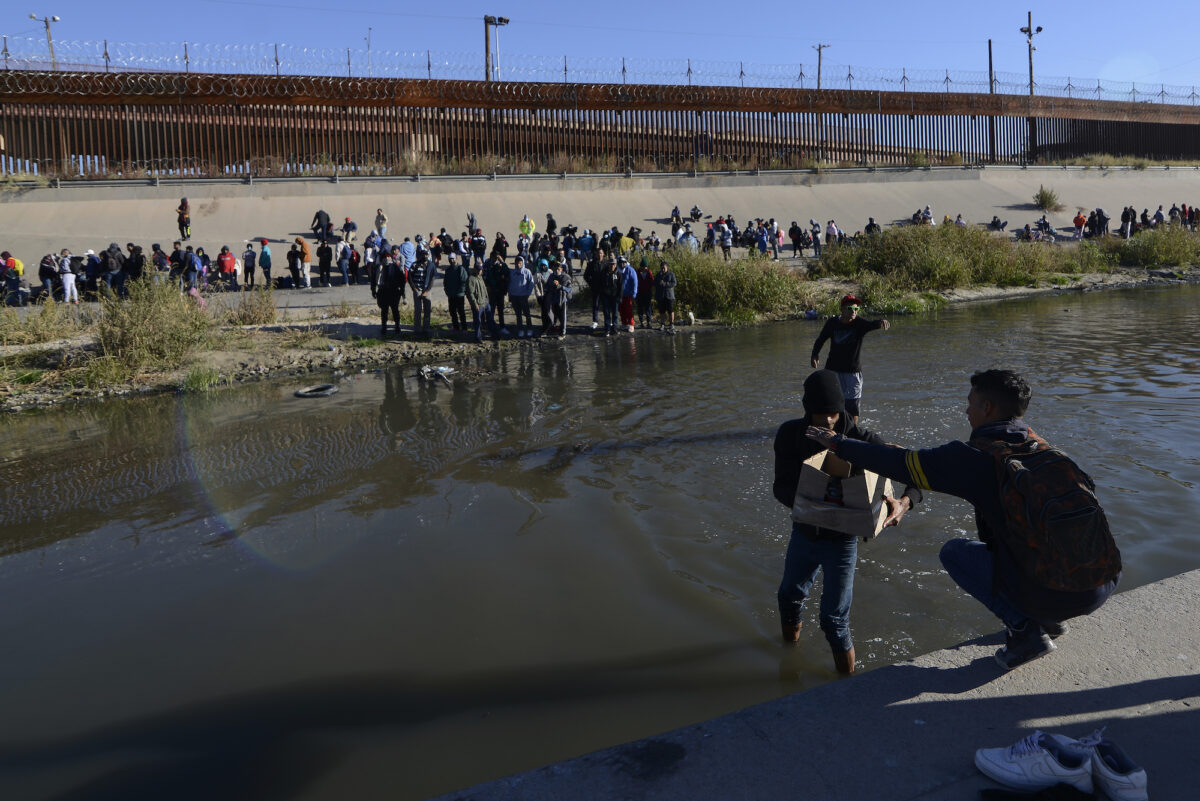
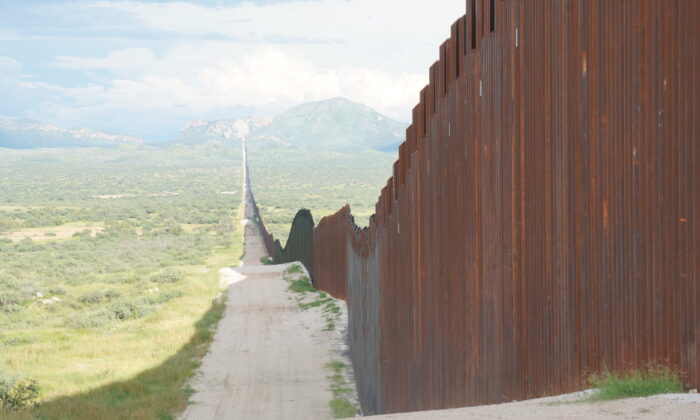
:quality(75)/https://static.texastribune.org/media/files/1415aaad5e57382ac3e0121fd72467f6/Afghan%20Translator%20TT%2004.jpg)
